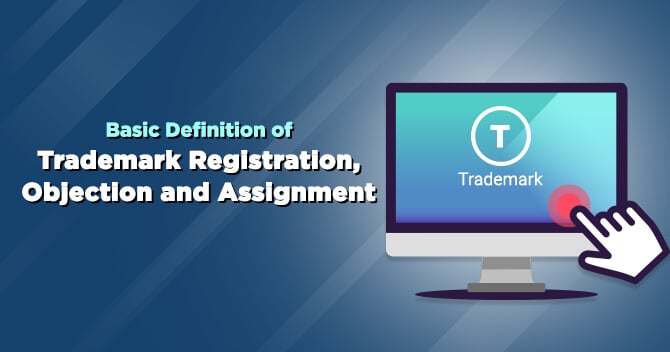Entrepreneurship is the root of all business ventures in the globe. Entrepreneurship has spawned numerous discoveries, ideas, breakthroughs, products, and processes. Intellectual Property (IP) is an unavoidable component of any business endeavour. In the haste to make their business endeavour a success, many entrepreneurs overlook the issue of intellectual property (IP) and fail to make necessary efforts to safeguard it. In certain circumstances, the entrepreneurs are unaware that they own an intellectual property asset. It is widely held that unless there is a cost to the development of an IP asset, there is no reason to safeguard or even consider protecting an IP asset.
Because the nature of an intellectual property asset is intangible, its value stays intangible for an aspiring entrepreneur. This is because, with the exception of a few, most entrepreneurs are unaware of the importance of intellectual property right and fail to see the need to budget for its protection even at an early stage. Certain IP assets, such as a patent or design, need initial disclosure to the regulator or authority for registration if the inventor or creator prefers legal monopoly and reaps the advantages. Certain IP assets, such as copyrights and trademarks, may not require registration in order to enforce one’s ownership rights, but registration will undoubtedly make asserting one’s rights before a court of law easier.
In India, the prevailing opinion is that if anything is invented without much work or sweat, no attempt should be taken to preserve the intellectual property (IP) in that invention. Because of this irresponsible attitude, numerous ideas, inventions, brands, designs, and copyrightable content have been royally copied, depriving the innovator, inventor, or creator of his golden opportunity to defend his rights. The Hindu Dharma emphasizes that knowledge is free, but it does not preach that the creations that result from the application of knowledge are free as well.
Importance of Intellectual Property Laws
Understanding the significance of intellectual property and recognizing it in the business will aid in its protection before the chance to get legal protection expires or the IP becomes generic. As a result, achieving IP creation should be a significant company strategy. Once the IP asset has been discovered, it must be evaluated in relation to the requirements of applicable legislation in terms of legal significance, terms of protection, and so on, and measures should be taken to protect it under relevant law. For an enterprise, the costs of invention, protection in the areas where the firm operates, and IP enforcement can be significant. As a result, the costs connected with such a continuous effort must be planned for and analyzed.
Protecting the intellectual property asset from entering into the public domain or being shared without ring-fencing it against unlawful communication must be enforced. Increasing IP knowledge among workers, consumers, and other stakeholders can help to preserve the identity of an IP asset.
Realizing the creation of Intellectual Property
One of the most difficult obstacles for every entrepreneur is realizing that he or she has generated an intellectual property asset throughout the course of his or her business journey. Due to gloomy finances and other concerns in the early years of the company, entrepreneurs placed a high value on budgeting any expense towards IP litigation for registration or monopolization. As a result, an entrepreneur must include the production of IP assets in his firm so that as soon as they are developed, effective efforts are made to preserve them.
Prior to commercialization, inventions must be disclosed to the patent office; otherwise, the inventor loses the right to patent the same. Prior to publishing, designs must also be registered. Optionally, trademarks and copyrights can be registered. If the work is developed under a contract for service, a statement that the copyright in the work belongs to the entrepreneur must be made.
What is the value of Intellectual Property Laws?
An assessment of the nature of the IP and its current and future value is required. All IP assets are time-limited. For example, patents are valid for 20 years, designs are valid for 14 years, and copyrights are valid for the author’s lifetime and for 60 years after the author’s death, trademark is valid for 10 years. As a result, the effective utility of the IP asset must be appraised so that the urgency and need to safeguard it is realized.
If a trademark is registered, it is only valid if the registration is renewed every 10 years. Non-renewal, on the other hand, simply cancels the registration and not the ownership of the trademark. The entrepreneur may opt to keep a specific innovation (process-based) as a trade secret. However, protecting the trade secret is a high risk. In India, there is no law that protects trade secrets. According to reports, KFC and Coca-Cola have maintained their business processes by making their goods a trade secret. The life of the innovation can outlast the time stipulated by a patent.
When a secret is revealed to the public, it loses its value. In the age of reverse engineering, it takes a tremendous amount of work on the part of the entrepreneur to retain his intellectual property asset as a trade secret. This needs extensive and pricey protection systems.
The entrepreneur should guarantee that every employee or business associate signs a Non-Disclosure & Confidentiality Agreement so that the valuable intellectual property asset is not transmitted irresponsibly in the course of business. When an employment contract or commercial connection expires, adequate care and attention must be performed in order to retrieve the papers or evidences reflecting the IP asset. It should be made clear that the Non-Disclosure & Confidentiality Agreement will outlive the end of the job or commercial relationship.
What is the cost of IP Protection?
It is crucial for entrepreneurs to consider the cost of acquiring intellectual property, whether through registration or assignment, as a significant expenditure in their company planning. Cost budgeting should take into account the region where the entrepreneur wants to conduct business. Because intellectual property is territorial, the entrepreneur must protect it independently in each area (country) where he intends to operate. Budgeting is also required for issues such as the regular search for any violation of the IP asset by any person in the areas where the IP asset is operated or registration is obtained.
Adequate steps must be made to combat such violations, the expense of which must also be allocated. Advertisements and caution notifications must be issued on a regular basis to inform the public about the ownership of the IP asset.
Role of Government in Raising Awareness on Intellectual Property Laws for Entrepreneurs
There is a huge need for government entities that support entrepreneurial talent to preach the value of intellectual property (IP) so that entrepreneurs are properly informed about their intangible assets and ways and means of protecting and utilizing them. In today’s commercial world, an intellectual property asset might be far more valuable than the most desirable and premium real estate. Thus, promoting awareness of intellectual property and its protection, similar to consumer advocacy, is critical for a country to be self-sufficient in technological advancement.
Indian enterprises profit considerably since the expense of pursuing an IP registration or protection activity is not prohibitively expensive as compared to the situation in other nations. The Government is responsible for getting this word to the entrepreneurs, and the different trade groups in the country should work hard to disseminate the information to their tribes. With its large purchasing power and rising urban population with spending power, India has forced even the premier brands, whose target clients are from the upper class, to scale down their aim to target the middle and upper middle classes.
The finest examples are high-end automobiles. Companies like as Benz and Volkswagen have begun to manufacture family hatchbacks in price brackets easily accessible to the middle class in order to broaden the product’s reach and attractiveness. Because of India’s large population, the manufacturer can make more money rather than selling a few high-end vehicles.
National Policies in India for Rasing IP Awareness
Many countries have frequently criticized India for failing to adequately protect intellectual property assets, particularly in the field of patent laws. As a result, the Government of India established a think tank chaired by former IPAB Chairperson Justice Ms. Prabha Sridevan. Since then, the think tank has released the National Intellectual Property Policy under the new tagline Creative India; Innovative India. The IP Policy’s primary goal is to develop a legislative framework that will significantly reduce the time required to register patents and trademarks as compared to the current regime. The seven-pronged IP Policy includes the following provisions:
- IP awareness outreach and promotion: To raise public knowledge regarding the public, social, and cultural advantages of intellectual property rights among every segment of the society. It advocates a statewide IP awareness campaign with the goal of increasing the public and creators of IP knowledge about the benefits of IPRs and their worth. It contributes to the creation of an environment in which creativity and innovation are promoted in the public and commercial sectors, R&D centres, industry, and educational institutions.
- PR generation: To encourage the creation of IP assets in the business. As a result, the government has encouraged new businesses to file patents and trademarks at a lower cost. Because the country has a large talent pool of young graduates and engineers, any market success will necessitate the creation of IPRs and their commercial exploitation.
- Legal and Legislative Framework: Strong IPR laws that balance owners’ rights with the greater public interest. While India’s IPR laws are TRIPS-compliant, this goal will guarantee that the rules keep up with the development of trade and commerce.
- Administration and Management: To modernize and strengthen service-oriented administration so that the time required to complete processes and registration is reduced, as well as the expenses associated with registration. The Trademarks Act of 1999[1] standards have been totally revised, with less paperwork and leaner process management.
- Commercialization of IPR: The ultimate goal is to leverage the economic worth of IPR assets in order to bring innovation to the common man. As a result, IP entrepreneurship is a crucial factor that connects IP creators with investors.
- Enforcement and Adjudication: Improving the enforcement and adjudicatory processes has become critical in countering IPR infringement. A strong intellectual property regime is one that is strongly supported by an efficient and effective IP enforcement ecosystem.
- Human Capital Development: There is also an urgent need to improve and develop human capital; institutions for education, research, and skill development in IPRs must be identified. Furthermore, it necessitates the formation of a knowledge pool of IP specialists that can assist in IP protection and economic exploitation.
Conclusion
With the National IP Policy in place, India joins a narrow group of League of Nations countries that publicly support an IP-protected environment, making it appealing for foreign entrepreneurs to invest not just economically but also in proprietary technologies. Caveat emptor has given way to caveat venditor, with the entrepreneur being challenged to continually think about and reinvent his products, services, and processes in order to stay in the hunt. As a result, it can be firmly said that every entrepreneur cannot monitor the realization and preservation of IP assets in his company endeavour if he wants to make a difference in an increasingly competitive market.
As a result, it can be stated that entrepreneurship and intellectual property assets are mutually reliant for a successful company enterprise.
FAQ
Intellectual Property Rights knowledge is critical to the generation of IPRs and ultimately the commercialization of IPRs, which is why the first and primary goal of the National IPR Policy is IPR knowledge: Outreach and Promotion.
Awareness and knowledge of IPR and associated regulations are critical for preserving and managing research discoveries, ensuring that no one infringes or steals someone else’s new work or concept.
The most prevalent kinds of IP protection are copyright, trademark, and patent. These provide you exclusive rights to your inventions, particularly in terms of monetary advantages from their usage.
The most prevalent kinds of IP protection are copyright, trademark, and patent.
The four basic categories of intellectual property protection are copyright, trademarks, patents, and trade secrets. Choosing the appropriate method to safeguard intellectual property may be difficult. This is quite true in highly technical fields such as industrial design or computer algorithms.
Patents are used to protect novel innovations and processes. Trademarks are used to protect logos, slogans, and other forms of branding. Copyright safeguards works of art, writing, music, cinema, and computer programs. A registered design protects a product’s visual design.
You must register most sorts of intellectual property (IP) rights in India in order to enjoy them. Individual registrations for patents must be made in India, however for rights other than industrial designs, you can apply through the Patent Cooperation Treaty, which is typically easier and faster.
Using your patents wisely can help you boost your bottom line by reassuring investors and enhancing profits. Protecting the appearance of your goods with an industrial design may give a significant competitive edge.
Intellectual property rights safeguard not only company ideas or concepts, but also true commercial assets that are critical to the goods and services.
Intellectual property rights may often be incredibly valuable negotiating chips, and they can be sold for a profit. A corporation may boost its asset value and future production by preserving its intellectual property.
The pan-India campaign seeks to educate 1 million pupils about intellectual property and its rights. The National IPR Policy’s first and greatest goal is outreach and promotion.
The National Intellectual Property Understanding Project (NIPAM) is a Pan-India project sponsored by the Government of India to raise student understanding of intellectual property rights.
Intellectual property rights (IPR) are legal rights provided to the inventor or creator to protect his or her invention or output for a specified period of time. These legal rights provide the inventor/creator or his assignee with the exclusive right to fully exploit his invention/creation for a set period of time.
The main aim for intellectual property protection is to stimulate human mind innovation for the benefit of everybody, as well as to ensure that the advantages derived from the exploitation of an invention benefit the inventor.
Read Our Article: The Role of IPR in the Protection of Biodiversity











